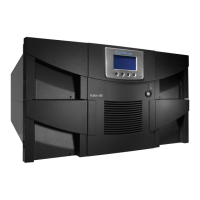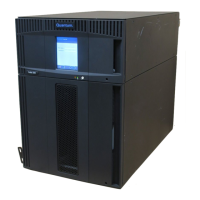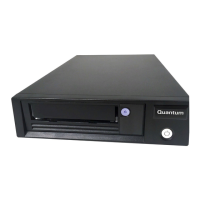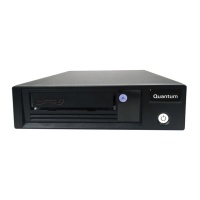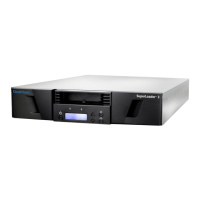Installing TLS Certificates on the SKM Server for Pre-SKM 2.4 (240Q) 27
Scalar Key Manager 2.5
Note: Remember, you must repeat all preceding steps on the secondary SKM
server.
16 Proceed to Configuring Your Library For SKM on page 38.
Requirements for
Installing User-provided
TLS Certificates
When providing your own certificates, it is assumed you understand the concepts of PKI
and can access the tools or third-party resources needed to generate or obtain
certificates.
Note: You must be running SKM 1.1 or higher on your SKM servers in order to install
your own TLS certificates.
Note: If you install your own TLS certificates on the SKM server, you must also install
your own certificates on the library. Similarly, if you use the Quantum-provided
TLS certificates on the SKM server, you must also use the Quantum provided TLS
certificates on the library. Some newer libraries come with Quantum-provided
TLS certificates pre-installed, and other newer libraries require certificate
installation. See your library user’s guide for instructions on how to verify
whether TLS certificates are installed on the library and how to install them.
You need to provide the following certificates:
• Root Certificate (also called the CA certificate, or Certificate Authority Certificate)
• Server Certificate
• Admin Certificate
These files must be in the proper format, as follows. If any of the following requirements
is not met, none of the certificates will be imported.
• The Root Certificate must be 2048 bits.
• The Root Certificate must be in PEM format.
• The Admin and Server certificates must be in pkcs12 (.p12) format, with a separate
certificate and private key contained in each.
• The Admin and Server certificates must be signed by the Root Certificate.
• Certificates must have the Organization name (O) set in their Issuer and Subject info.
• The Admin certificate must have its Organizational Unit name (OU) set as
“akm_admin” in its Subject Info.
• The same Root Certificate must be installed on the SKM servers and the library.
• All the certificates must have a valid validity period according to the date and time
settings on the SKM server.
